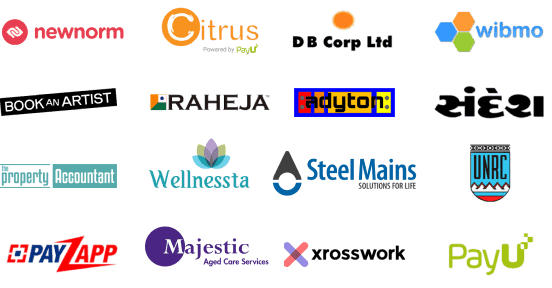AI marketing automation is changing the game for how businesses handle their campaigns, keep customers engaged, and fine-tune their sales processes. By 2025, this tech isn't just about simple automation anymore. AI has stepped up to offer data smarts, predictive insights, and seamless channel management. If you're a CTO on a hunt for the right platform, a product manager assessing options, or an agency trying to find the best white-label choice, knowing which AI marketing tools top the list is crucial for keeping your edge.
This guide dives into the top 7 AI marketing automation tools of 2025, complete with real-life case studies to help you make confident decisions backed by expert insights and credibility.
What Is AI Marketing Automation and Why Does It Matter?
In simple terms, AI marketing automation uses intelligent software to streamline marketing tasks, cutting down on manual work and upping the precision. We're talking about automating emails, social media ads, customer segmenting, lead scoring, and orchestrating your campaigns. But it's more than setting up workflows—AI brings in forecasting powers and context-based insights that truly personalize your marketing efforts on a big scale.
Here’s why it matters for your business:
- It automates the drudgery, saving time on repetitive tasks.
- Engages customers better with personalization courtesy of AI.
- Boosts targeting precision using data-driven customer segmentation.
- Keeps your spending in check with live insights into ad performance.
As marketing gets more complex, these perks become vital. CTOs appreciate platforms that gel well with current systems. Product managers seek solutions that offer real returns and are easy to roll out. Agencies look for white-label adaptability with powerful automation capabilities.
Criteria for Selecting the Best AI Marketing Automation Tools in 2025
With so many AI marketing solutions out there, picking the right one involves a careful look at certain aspects. Here's what to keep an eye on:
Integration Capabilities
Make sure your tool plays nice with CRM systems, content platforms, and analytics software to ensure smooth data and workflow integration.
AI-Driven Features
Look for features like lead scoring that's on-point, dynamic audience segmentation, content automated by AI, and real-time campaign optimization.
Ease of Use
An intuitive interface helps reduce training time and encourages adoption. Crucial if you're bringing non-techies on board.
Scalability and Flexibility
Your tool should grow with your business and manage multiple marketing channels like email, social media, digital ads, and SMS.
Data Security and Compliance
Reliability hinges on following privacy laws like GDPR and CCPA with strong encryption and secure data storage.
Support and Vendor Reputation
Excellent vendor support and a solid track record speak volumes for a platform’s reliability.
Top 7 AI Marketing Automation Tools in 2025 (With Use Cases)
1. HubSpot Marketing Hub
HubSpot shines with a comprehensive platform that mixes AI-driven email marketing automation, CRM integration, and campaign management software.
Use Case: A midsize B2B software business leveraged HubSpot to fire off user-behavior driven onboarding emails, seeing a 30% lift in open rates and a 20% boost in sales leads within half a year.
Key Features:
- Personalized content courtesy of AI
- Smart audience segmentation and scoring of leads
- Smooth CRM tool integration
- Automated scheduling and social media analytics
2. Salesforce Marketing Cloud
Salesforce Marketing Cloud stands out for its robust CRM automation tools coupled with AI-powered advertising through Einstein AI.
Use Case: Using Salesforce's predictive tools, a retail chain optimized email and ad campaign product recommendations, boosting conversion rates by 25% year-over-year.
Key Features:
- Predictive scoring via Einstein AI
- Cross-channel campaign automation
- Comprehensive analytics and reports
- Deep CRM integration
3. Marketo Engage (Adobe)
Marketo offers powerful campaign automation features well-suited for complex B2B campaigns and account-based marketing.
Use Case: A financial services firm crafted AI-enhanced nurture campaigns that evolved based on user actions, trimming the sales cycle by 18%.
Key Features:
- Advanced email marketing automation powered by AI
- Behavioral tracking in real time
- Automation for account-based marketing
- Strong integrations with CRM and analytics tools
4. ActiveCampaign
ActiveCampaign strikes a balance between power and ease of use, focusing on AI-based email marketing and CRM automation tools.
Use Case: An e-commerce startup boosted repeat purchases by automating personalized cart recovery emails and product recommendations.
Key Features:
- Email triggers based on behavior
- AI-driven predictive sending and customer segmentation
- Simple CRM automation
- Automation across various channels like email, SMS, and chat
5. Adext AI
Adext specializes in optimizing digital ad campaigns with AI, managing platforms like Google and Facebook for better results.
Use Case: A travel agency dropped acquisition costs by 30% by using Adext’s AI for bid and targeting adjustments on-the-fly.
Key Features:
- AI optimizes ad spending
- Bid and budget adjustments in real-time
- Campaign management across multiple networks
- In-depth ROI insights and tracking
6. Mailchimp
For small businesses focused on email marketing, Mailchimp remains a favorite due to its straightforward approach to AI-driven campaigns.
Use Case: A local gym upped membership by 15% by deploying AI-based segmentation and custom email sequences through Mailchimp.
Key Features:
- Audience segmentation powered by AI
- Pre-packaged automation workflows
- Creative content advice
- Basic CRM capabilities
7. Autopilot
Autopilot provides visual campaign automation software with features for mapping customer journeys using AI, helping to engage clients effectively.
Use Case: By using Autopilot's journey mapping features for customer engagement, an e-learning platform boosted course completion rates by 22%.
Key Features:
- Drag-and-drop for building journeys
- AI-powered tracking and customer segmentation
- Real-time messaging across multiple channels
- Integration with CRM systems and analytics tools
Real-World Insights: Choosing the Right Tool for Your Business
The best results come when businesses combine AI marketing automation with human insight. For example, CTOs must ensure that the tools align with their technology stacks and meet security and regulatory requirements. Meanwhile, product managers prioritize features that aid user adaptation while maximizing campaign effectiveness.
Agencies often need the flexibility of white-label options, dependable customer service, and cost structures that work across different client situations. Testing the waters with trial periods and focusing on KPIs like email open rates, conversion metrics, and ad spend returns will help nail down the optimal choice.
How to Implement AI Marketing Automation Successfully
Step 1: Define Clear Goals
Start by figuring out what you want to accomplish—be it more leads or better ad return-on-investment. Your goals steer your choice of features and metrics.
Step 2: Map Customer Journeys
Identify where automation can boost value. For instance, automate nurturing for leads that have shown interest by, say, downloading an e-book, or reconnect with dormant users via engagement emails.
Step 3: Integrate with Existing Systems
Integrating seamlessly with CRM and data platforms is key to personalizing customer communications effectively.
Step 4: Start Simple and Scale
Begin with basic automated campaigns, watch the results, then tweak and expand. Introduce advanced AI features like predictive scoring as your team gains confidence.
Step 5: Monitor Compliance and Security
Make sure data handling practices are in line with GDPR, CCPA, and similar regulations to maintain customer trust.
Conclusion
Embracing AI marketing automation is becoming crucial for businesses that aim to boost efficiency, tailor customer experiences, and hike revenue in 2025. The top names mentioned here cater to various needs, from email marketing to CRM tools and optimizing AI advertisement.
By understanding what each tool offers and applying a well-structured implementation plan, CTOs, product managers, and agencies can confidently choose the AI marketing automation platform that best aligns with their strategies and technical environments.
Eager to enhance your marketing with AI automation? Dive into trials or demos, set tangible goals, and witness how these tools revolutionize your customer interaction and marketing performance.





